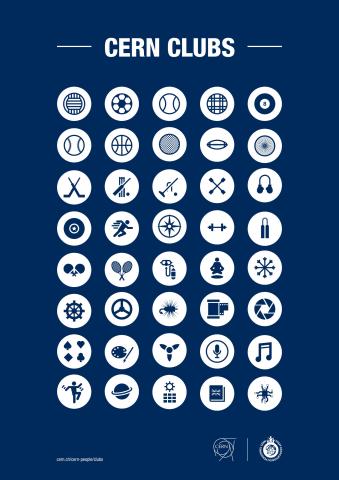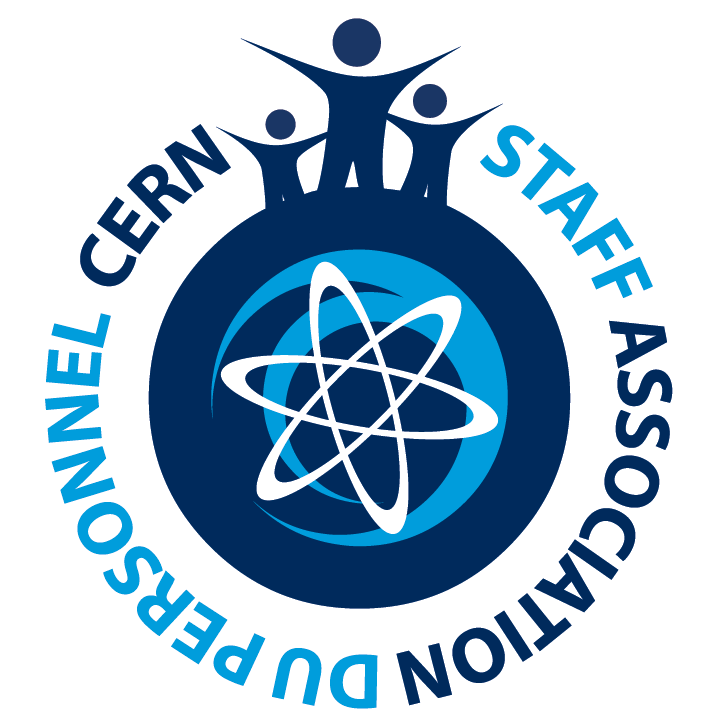Interview président CCC

Interview with CCC President – Michael Jaussi
Rachel Bray, who served as President of the Clubs Coordination Committee (CCC) for many years, concluded her term at the end of 2024. The Staff Association warmly thanks her for her dynamism and dedication to the clubs, which are an essential element for integration at CERN and building social ties.
According to the document "Clubs under the aegis of the CERN Staff Association," the President of the CCC is appointed by the Staff Council for a renewable three-year term, based on the recommendation of the Executive Committee (EC) and after consultation with the CCC.”
Following this procedure, the Staff Council unanimously supported the EC's proposal to appoint Michael Jaussi as CCC President, effective January 1, 2025. We invite you to get to know the newly-elected President in the following interview.
• Can you briefly introduce yourself and tell us about your personal and professional background?
My name is Michael Jaussi. I am Swiss and Dutch, born in Geneva. I studied computer engineering at what is now called HEPIA but was previously known as EIG (École d’Ingénieurs de Genève). After a few years of working on banking software, I applied to CERN on the recommendation of a former classmate. I started at CERN in July 2009, right in the middle of the rush to restart the LHC after the 2008 incident.
• What is your experience with the world of associations?
I’ve always been involved in the world of associations, whether through sports clubs I attended in my youth, the École & Quartier association in Versoix where my mother use to work and which allowed me to take many courses, or by participating in the computer club run by my father.
As an adult, it felt natural to get more involved in the world of associations. I did so with Post Tenebras Lab, where I served as secretary from 2011 to 2014 and as President from 2014 until now. Through Post Tenebras Lab, I collaborated on three editions of Muséomix Suisse (2014, 2016, and 2017) and co-organized the 2015 and 2018 editions of LemanMake, a festival for makers in French-speaking Switzerland that attracted around 1,500 visitors each time. I’ve been treasurer for LemanMake since 2017. These opportunities allowed me to handle all aspects of running an association. Since 2024, I’ve also been leading the new retro-computing section at the Micro Club.
• What motivated you to run for the CCC presidency?
It was during a presentation about the roles assigned to the Staff Association to inform potential new delegates that I discovered the existence of the CCC. Seeing that this role wasn’t reserved for club Presidents, I thought I could bring my experience from the Swiss associative world and my pragmatic approach. I also saw it as an opportunity to discover clubs I didn’t know yet and to collaborate with people passionate about sharing their interests.
• In your opinion, currently what are the biggest challenges facing the clubs and/or the CCC?
A major challenge for many clubs is the significant loss of members during COVID, with some clubs losing up to half their members. Some clubs also lost access to essential infrastructure, so we’ll need to do our best to find solutions and prevent their potential extinction. I also think there’s a mindset shift, with people increasingly seeing clubs as service providers rather than communities of volunteers sharing a passion or knowledge. This can make it harder to renew club committees.
• What are your main goals for this first year as President?
My goals for this first year are to improve communication about the Clubs through events and better online visibility, taking advantage of the IT department’s migration to WordPress. The CCC website itself is in dire need of improvement. We’ll also revise the "Clubs under the auspices of the Staff Association" document, which hasn’t been updated since 2017. I’d like the CCC to help Clubs by providing customized statutes for new Clubs, whether under Swiss or French law, as well as a model confidentiality declaration to comply with OC11. A more detailed FAQ to address recurring questions about club operations at CERN would also be helpful.
• Have you identified areas for improvement in the current organisation of the CCC/Clubs?
In the very short term, we’ll need to appoint new CCC members during a meeting of club presidents, as the two-year terms of current members have ended, and some long-serving members don’t plan to run again. While I thank the current CCC members for their contributions, new members will bring fresh perspectives to our meetings. I’d like to increase the number of meetings to 4-6 per year, instead of the 2-3 in recent years, to make better use of the experience and ideas of CCC members.
• What is your strategy for diversifying/complementing the range of activities offered by the Clubs?
This is a tough question… But I hope that by improving the visibility of Clubs and their activities, allowing more people to contact the CCC or directly approach a club to ask why certain activities aren’t offered. Who knows, this might spark the creation of a new section or even a new club!
• What is your strategy for attracting new members and retaining current ones?
We have more and more staff at CERN on short-term contracts, whether new graduates (GRAD) or technical and administrative students. Clubs that haven’t already considered this should think about ways to attract this group, perhaps through specific activities or reduced fees. As for retaining current members, with the losses during COVID, I think we’re left with the most loyal members. But that doesn’t mean we should take them for granted. Organizing new one-off or recurring activities could encourage these members to talk about their Clubs to colleagues, promoting the Clubs organically through word of mouth.
• How will you strengthen communication with Club Presidents, members, non-members, and the Staff Association?
For Club Presidents, there’s an e-group mailing list that I plan to use as much as possible, and there’s usually an annual meeting of Club Presidents, which I’m considering increasing to twice a year. For Staff Association members, I hope they already read the information Clubs publish in the ECHO, and I plan to discuss with club representatives how to improve this communication channel. For Staff Association representatives, communication will happen through reports at Staff Council meetings. As for reaching non-members, I hope better online visibility and events, combined with posters in CERN restaurants and notice boards, will help them discover CERN Clubs.
• What kind of events or activities do you plan to organize in the coming months to highlight the Clubs?
For the coming months, we already have a big event planned: the relay race, a must every year! The next edition is scheduled for Wednesday, May 14, 2025. But this time, it’s special because we’ll also be celebrating the 70th anniversary of the Staff Association!
To mark this milestone, we’re planning additional activities, including musical entertainment and a wider range of food options so all staff members and their families can enjoy the day to the fullest.
I really hope many Clubs will seize the opportunity to set up a stand and showcase their activities. For Clubs whose activities don’t lend themselves to a traditional stand, I’m open to organizing open days with demonstrations to show what they do best!
And that’s not all! I also have a few other ideas in mind:
- A photo exhibition tracing the history of the Clubs, like the one we recently did for the Staff Association’s highlights. It would be great to see how the Clubs have evolved!
- Why not have friendly competitions between Clubs? Nothing too serious, just for fun and to get people talking. Imagine the atmosphere!
In short, there are plenty of projects in the works, and I can’t wait to see how they unfold. If you have ideas or suggestions, don’t hesitate to share them with us!
• How can Clubs contribute more to integration and community-building at CERN?
Clubs play a vital role in strengthening ties between CERN and the community! They create bridges between newcomers and local residents. Imagine someone arriving at CERN and joining a club—they can immediately make local friends, which is a huge help for integration.
Moreover, CERN members who are part of Clubs are true ambassadors for CERN. Through them, club activities help introduce CERN to the local population. It’s an opportunity to show that CERN isn’t just a science lab but also an organization that contributes greatly to the region.
Clubs are a fantastic tool for mixing cultures, creating connections, and showcasing CERN in the region. So, if you have ideas to take this even further, don’t hesitate to share them!
